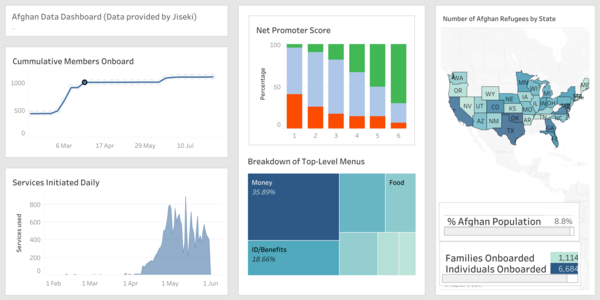Employment
Tech partner: Workforce Hope
Legal paperwork and employment are key needs for almost every migrant and refugee population. Employment lends dignity and stability and legal paperwork enables employment.
Our new partners at the startup Workforce Hope and the nonprofit Workforce Hope Foundation are tackling this problem at both ends with a platform to streamline, automate, and integrate work visa and immigration and employment paperwork while also engaging employers so migrants can directly apply for – and as needed be trained for – specific positions. This helps meet a major macroeconomic need as firms struggle to fill essential roles, supports regional economic development, and generates a reliable revenue stream to support the intake, processing, training, and relocation of migrants.
One especially promising opportunity is with entry-level healthcare workers known as Certified Nursing Assistants (CNA). The CNA certification can be obtained with just six weeks of training and qualifies the applicant for secure, decent-paying positions that are in extremely high demand. MIN and WFH have recently engaged the Indiana Health Care Association (IHCA), a trade group for elder care facilities, to explore providing this training free of charge, placing graduates at hospitals and care facilities across the state. IHCA President Paul Peaper “can guarantee that IHCA can build a coalition of Indiana Healthcare employers. All 483 of our member facilities [have exigent staffing needs], every single one of them.”
WFH is also helping Ukrainians already in the US procure jobs. The Ukrainian Catholic Archeparchy of Philadelphia receives dozens of inquiries a day for help finding a job and housing, and WFH has become their default source for employment. Overall, WorkForce Hope is currently processing visas and filling positions at the rate of 50 refugees per month, with the goal of increasing this rate to 100 per month in six months.
Tech partner: Jiseki Health
The American pullout from Afghanistan in September of 2021 suddenly brought tens of thousands of Afghan refugees to the US. Bill Canny, Executive Director of service provider USCCB Migration and Refugee Services, encouraged MIN to urgently switch focus to this population. MIN partnered with tech innovator Jiseki Health, producers of a hybrid human and AI-enabled SMS chatbot platform to reach and provide services to these new arrivals. Powered largely by word-of-mouth, this effort eventually scaled to reach 9% of all Afghan parolee families in the US, servicing an average of 466 requests per week. While it provided a range of support services, interviews and survey research conducted by MIN student interns revealed that the top needs were for legal support and employment – services not yet provided via Jiseki.
While Jiseki recruited low-cost or pro-bono legal services, a MIN student intern worked the ND alumni network to recruit highly-placed corporate leaders in relevant industries such as healthcare and hospitality, including the CEO of Marriott Canada and the CCO of Choice Hotels. These efforts created a pathway to secure 250 job commitments from employers, 16 of which have been filled by Afghans to date, with many more expected.
